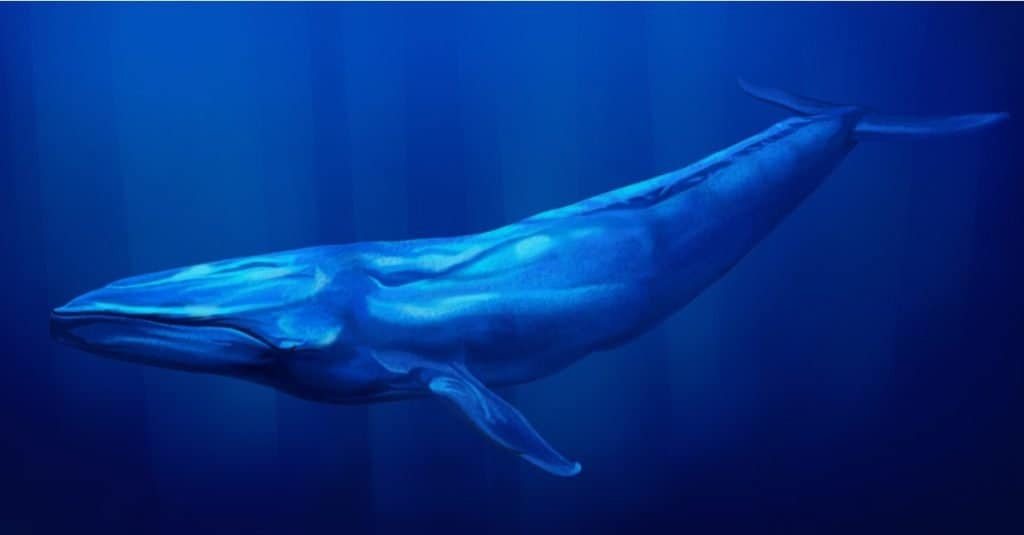
What is the world's largest animal?
In prehistoric times there were gigantic creatures living on land and in the sea that were far larger than most animals alive today. The largest animal in existence today is the blue or sulphur- bottom whale.
It may be over a hundred feet long and weigh 125 tons. And interestingly enough, about one-third of the length of this animal is taken up by its head!
Advertisement
Perhaps the most amazing thing about the whale is not its size, but the fact that it is a mammal and not a fish. Like all water mammals(such as dolphins and porpoises), whales are descended from ancestors that lived on land. There is evidence of this in the structure of their bodies. The skin and flesh of the paddle-like flippers cover the bones of a five-fingered "hand". Some whales even have the bones of hind legs embedded in their flesh.
Since the whale is a mammal, the baby whale is fed on its mother's milk like other baby mammals. It is not hatched from an egg but is born alive, and for sometime after it is born it stays with its mother.
Whales have no gills, and breathe air through their lungs. They have horizontal tails, or flukes, which enable them to rise easily to the top of the water for air. The internal organs of the whale and the skeleton, circulatory system, and brain are also quite unlike those of the fish.
As whales developed and adapted themselves to life in the water, many changes took place; among these was the development of blubber. Mammals are warm-blooded animals, and it is very important for them to keep their body temperature within certain limits. Whales have a layer of fibrous tissue under their skin that is filled with oil and retains heat. On a larger whale, this layer of blubber may be from fourteen to twenty inches thick.
On the top of the whale's head are one or two blowholes; this makes it easier for them to breathe at the surface of the water. Underwater these nostrils are closed by little valves, and the air passages are shut off from the mouth, so there is no danger of taking water into the lungs. Whales can remain underwater for three-quarters of an hour!
More tell me why
